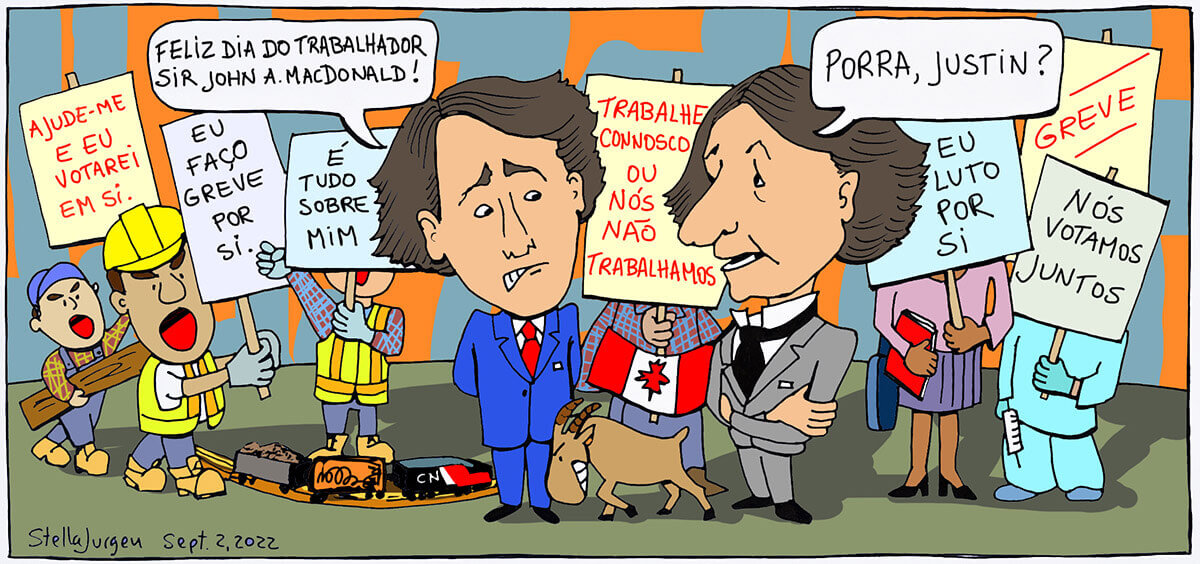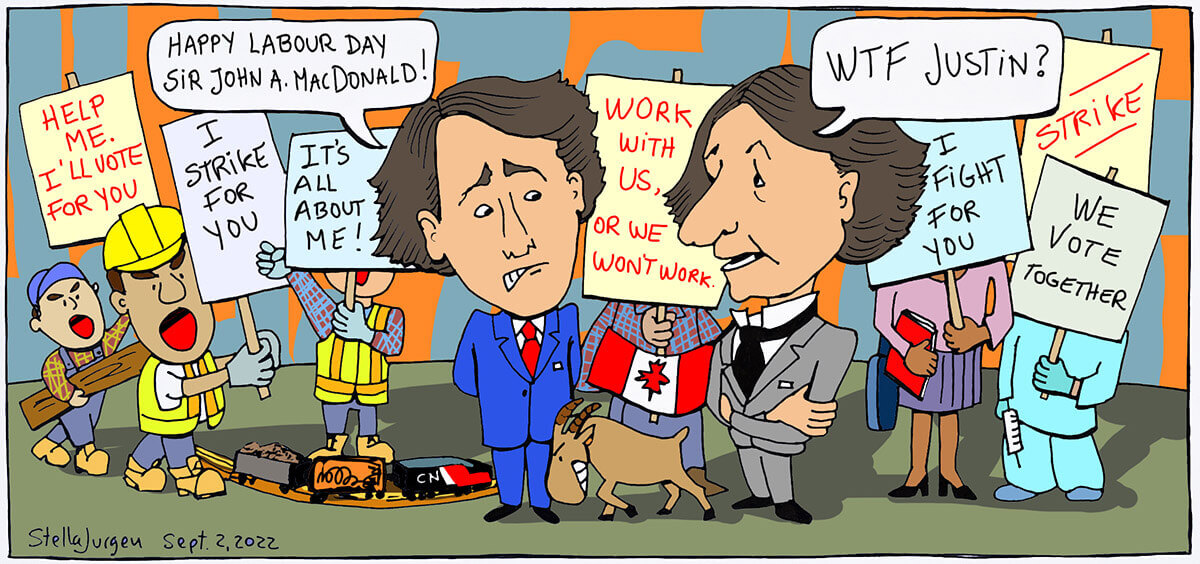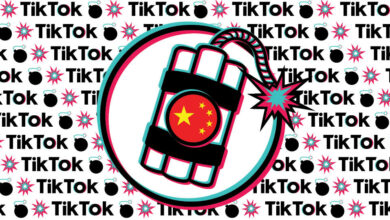Sindicalizar as nossas vidas
A evolução dos partidos políticos e o reforço dos sindicatos em todo o Canadá resultou na polinização cruzada do poder, que controla todos os aspetos da vida canadiana, mas predominantemente os seus cidadãos.
Os sindicatos foram originalmente criados para proteger os trabalhadores vulneráveis contra empresas e agências governamentais pouco éticas. Em 1872, quando Sir John A. MacDonald introduziu legislação que legalizava os sindicatos, pouco se apercebeu da força que deu aos trabalhadores do futuro poder coletivo. Tradicionalmente, os sindicatos têm estado envolvidos na política por três razões:
- Para obter o reconhecimento do direito dos trabalhadores a formar sindicatos e a negociar coletivamente.
- Para proteger os ganhos que obtiveram através da negociação coletiva e,
- Promover a justiça e a igualdade de oportunidades económicas para todos (trabalhadores sindicalizados).
Os governos e as empresas vão muito longe para explicar que os sindicatos são “grupos de interesses especiais”, mas serão? Os sindicatos de hoje já não são as mesmas organizações que Sir John A. MacDonald tinha em mente. A força do poder no lobbying por interesses especiais pode ser observada pela extensão com que o poder político abraça estas organizações. Existem, obviamente, exceções em que os sindicatos representam os trabalhadores do governo, e por isso as opiniões contrárias são a norma. Para os sindicatos que agem politicamente é a coisa lógica e esclarecida a fazer, mas será a coisa certa a fazer? Os conselhos de trabalho foram criados para resolver litígios de uma forma justa e profissional, mas é o processo político que altera a legislação que beneficia o trabalho organizado. Aqueles que não estão organizados são frequentemente ignorados porque não têm força coletiva e um compromisso de ação política, o que convencerá os governos e as empresas do que é ditado. A força é eleger políticos que tenham a mesma vontade de representar os interesses dos sindicatos ou serão responsabilizados na altura das eleições.
Os sindicatos representam ideais de esquerda, mas a sua polarização deslocou as opiniões políticas para uma planície centrista e, em casos convenientes, para a direita do centro. Este fenómeno mostra que o poder político estabelecido sucumbiu e comprometeu os ideais partidários em nome do apoio vindo do trabalho organizado. No futuro, o conceito de independência no governo deve ser questionado não só para a diluição da política governamental para todas as pessoas, mas para abraçar uma realidade conveniente de que tudo está à venda.
Ao celebrarmos o Dia do Trabalho, devemos lembrar que os sindicatos são constituídos por membros individuais cujo trabalho árduo financia todos os aspetos das agendas do trabalho organizado. Estes trabalhadores, que todos os dias trabalham arduamente para construir as nossas cidades e assegurar a saúde e o bem-estar das infraestruturas do nosso país, merecem o nosso respeito, mas nunca esqueçamos aqueles que trabalham fora do trabalho organizado que muitas vezes são negligenciados e diminuídos por não pertencerem.
A distribuição do poder deve ser igual para todos os cidadãos e aqueles que diluem os seus valores para proveito político não devem representar a multidão de cidadãos que vivem cada dia sentindo-se abandonados pelo sistema.
O trabalho organizado está entrincheirado na vida de milhões de trabalhadores e deve continuar a estar mesmo que muitos questionem antecipadamente a sua necessidade em sociedades avançadas. Apoiemos cada trabalhador e não permitamos que o processo político assuma todas as agendas das nossas vidas.
Feliz Dia do Trabalho.
Manuel DaCosta/MS
Editorial in english
Syndicating our lives
The evolution of political parties and strengthening of unions across Canada has resulted in cross-pollination of power, which controls every aspect of Canadian life but predominantly its citizens.
Unions were originally created to protect vulnerable workers against unethical companies and government agencies. In 1872, when Sir John A. MacDonald introduced legislation legalizing unions, little did he realize the strength he afforded to the workers future collective power. Traditionally, unions have been involved in politics for three reasons:
- To gain recognition of the right of workers to form unions and bargain collectively.
- To protect the gains they have won through collective bargaining and,
- To promote justice and equal economic opportunity for all (unionized workers).
Governments and businesses go to great lengths to explain that unions are “special interest groups”, but are they? Unions today are no longer the same organizations that Sir John A. MacDonald had in mind. The strength of power in lobbying for special interests can be observed by the lengths which the political establishment embraces these organizations. There are obviously exceptions where unions represent government workers, and thus contrarian views are the norm. For unions acting politically is the logical and enlightened thing to do but is it the right thing to do? Labour boards were created to settle disputes in a fair and professional manner, but it is the political process that changes legislation that benefit organized labour. Those who are not organized are often ignored because they have no collective strength and a commitment to political action, which will convince governments, and businesses what is dictated. The strength is to elect politicians who are like-minded to represent the interests of unions or they will be held accountable at election time.
Unions represent left wing ideals but their polarization has moved the political views to a centrist plain and in convenient cases to the right of centre. This phenomenon shows that the political establishment has succumbed and compromised party ideals for the sake of support coming from organized labour. Futurelly, the concept of independence in government should be questioned not just for the dilution of government policy for all people but for embracing a convenient reality that everything is for sale.
As we celebrate Labour Day, we should remember that unions consist of individual members whose hard work finance every aspect of organized labour agendas. These workers who each day work hard to build our cities and ensure the health and wellness of the infrastructure of our country, deserve our respect, but let’s never forget those who work outside of organized labour who are often overlooked and diminished for not belonging.
Power distribution should be equal for all citizens and those who water down their values for political gain should not be representing the multitude of citizens who live each day feeling abandoned by the system.
Organized labour is entrenched in millions of workers’ lives and should continue to be even if many question its need in advance societies. Let us support each worker and not allow the political process to take over every agenda of our lives.
Happy Labour Day.
Manuel DaCosta/MS










Redes Sociais - Comentários